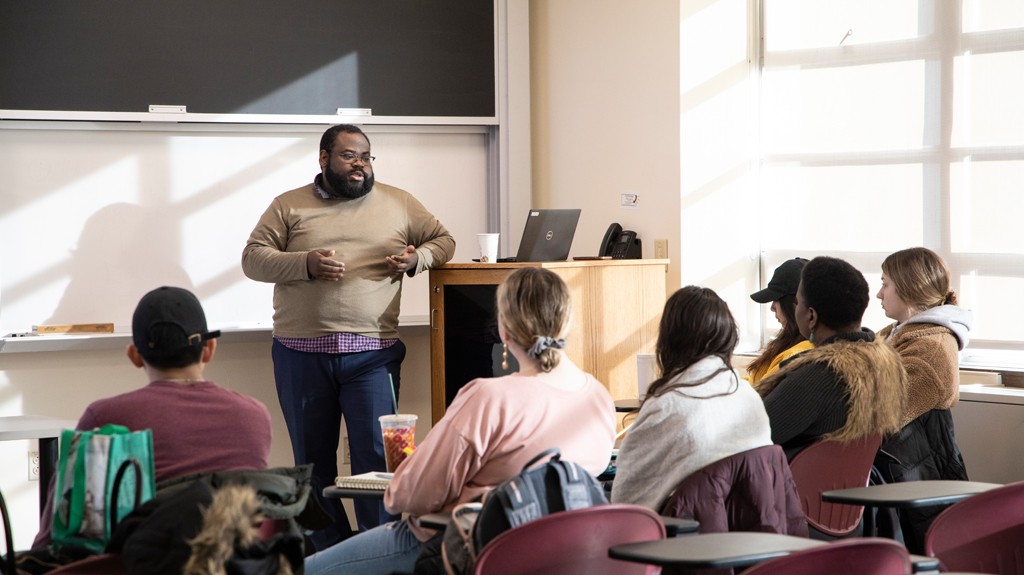“I want to look up one day and see one of our graduates running for president of the United States.”
In the first year of the program, students will take three courses as a group. Bradley and Parchment will teach “Re-thinking Diversity,” which explores the causes and effects of oppression and privilege.
In the second year, students will do internships that benefit the Black community. They might work at a health clinic, providing therapy to Black clients, or for a government agency, drafting policies that support Black constituents. As part of the initiative, the school is working with more than 600 agencies across the country.
“The idea is to think broadly,” says Bradley. “We want to take our track record of success at BC and create special resources to support the Black community.”
The focus of meetings will shift from month to month, but Bradley says they will always prioritize both the body and the mind. In one meeting, students might practice yoga. In another meeting, they might hear from a social worker who studies ways to strengthen the bond between parents and children.
“We want to create a space where students can share their knowledge, experiences, and values,” says Bradley. “We’re interested in Black healing, and we want students to be able to rely on each other.”
He hopes the program will extend beyond the classroom and the field, noting that he wants to host workshops, conferences, and continuing education seminars for Black social workers.
“We have the resources, the intelligence, and the innovation to make changes after we’ve gotten the ball rolling,” he says.



